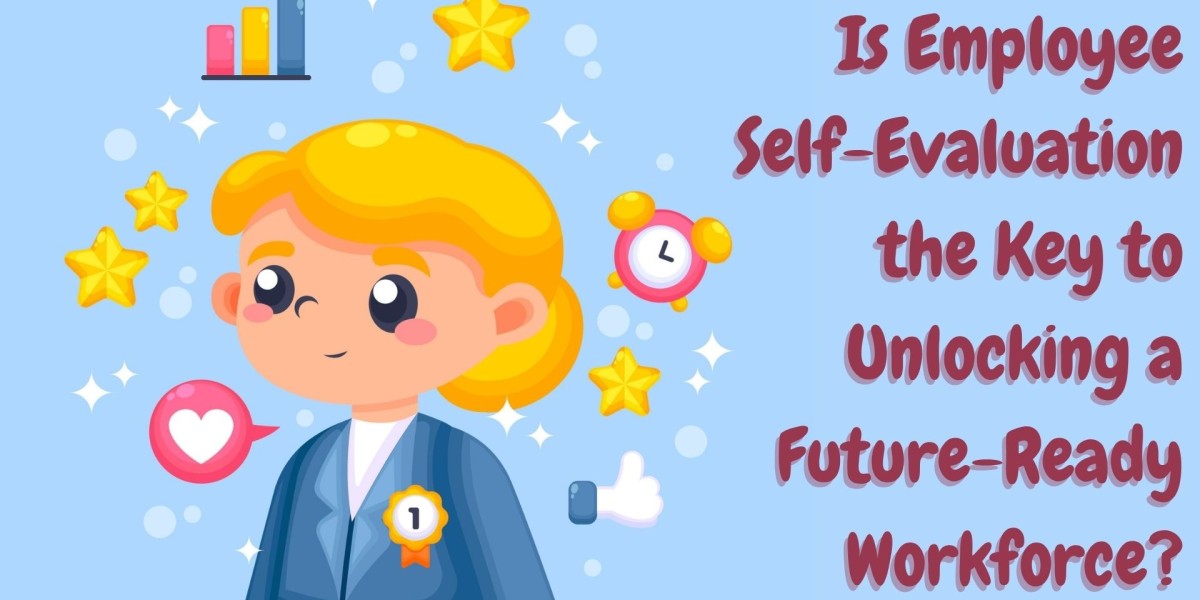In today’s fast-evolving work culture, where innovation, autonomy, and adaptability are more than just buzzwords, organizations are realizing that traditional top-down performance reviews no longer hold the same weight they once did. Employees now seek more than just an annual rating—they crave acknowledgment, meaningful growth, and a genuine seat at the table. Amidst this transformation, a simple yet powerful tool is gaining traction: employee self-evaluation.
Unlike outdated review systems that often feel one-sided or rigid, self-evaluation brings the human element back into performance conversations. It gives employees the power to reflect, recognize, and redefine their own contributions. And in doing so, it fuels a more thoughtful, responsive, and future-ready workforce.
The Shift from Hierarchical to Human-Centric Reviews
For decades, performance reviews were viewed as a box to be checked—more about compliance than connection. But times have changed. Employees are no longer satisfied with being told how they performed; they want to participate in defining their own narrative.
This shift isn’t just about being modern; it’s about being mindful. Self-evaluations align perfectly with the evolving ethos of transparency, collaboration, and empowerment. When individuals evaluate their own work, they’re more likely to take ownership of their progress and feel genuinely involved in the organizational journey.
How Technology Is Enabling Reflective Workspaces
As workplaces digitize, software tools have stepped in to make employee development not only more efficient but more insightful. Modern platforms designed for performance management now offer self-evaluation features that go beyond just filling out forms. They provide structured templates, intelligent prompts, and integrated data analytics that help employee growth, identify gaps, and map out their future paths with clarity.
Some platforms even use AI to suggest achievements based on project baseline, remind users of past goals, and align self-reflection with broader company KPIs. These features aren’t just convenient—they’re transformational. They help bridge the gap between personal reflection and strategic alignment.
A Closer Look at Software That Supports Employee Growth
Let’s consider what today’s leading performance platforms actually offer when it comes to employee self-evaluations:
Smart Reflection Templates: Guided questions that push deeper thinking—beyond “What did you achieve?” to “How did it impact the team or customer?”
Goal Alignment Dashboards: Visual tools that help employees see how their efforts connect to company goals.
Feedback Integration: The ability to review peer or manager feedback in real time while reflecting.
Personal Growth Tracker: Interactive logs where employees can mark skill development, training completions,team tracking or milestone wins.
Auto-Save and Cloud Sync: So reflections are never lost and can be revisited or revised anytime.
These features foster a culture where feedback is ongoing, not episodic, and where performance is a journey, not a judgment.
Why It Matters More Than Ever?
We’re in an era where remote work, cross-functional collaboration, and hybrid teams are becoming the norm. In such distributed environments, self-awareness is no longer optional—it’s critical. A well-crafted employee self-evaluation enables individuals to stay aligned, stay motivated, and stay connected, even without constant face-to-face interaction.
For managers, it’s an invaluable lens into each team member’s mindset, motivations, and challenges—offering insights that would otherwise go unheard. It’s also a moment to discover potential, encourage initiative, and foster trust.
The Human Side of Self-Evaluation
But perhaps the most compelling reason to embrace employee self-evaluation lies in its emotional intelligence. When people are given the chance to reflect, they become more engaged, more honest, and more open to growth. It cultivates a learning mindset and reinforces that their voice matters—not just in what they do, but in how they see themselves.
There’s power in being heard. And there’s growth in being able to say, “Here’s what I did. Here’s what I learned. And here’s where I want to go next.”
You can also watch:- EmpMonitor Dashboard Walkthrough
Final Thoughts: Reimagining the Review Experience
In a world of evolving work expectations and rising employee consciousness, rethinking how we assess performance is not just strategic—it’s essential. By integrating tools and mindsets that honor reflection, dialogue, and development, organizations can nurture a workforce that’s not only skilled but also self-aware and inspired.
Ultimately, the act of an employee self-evaluation is more than a performance metric. It’s a mirror—one that encourages ownership, invites growth, and reflects a future where people feel seen, valued, and empowered to rise.







